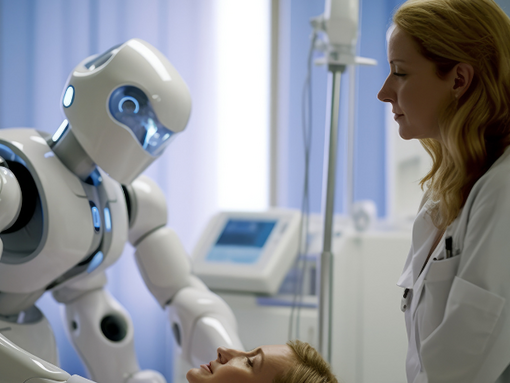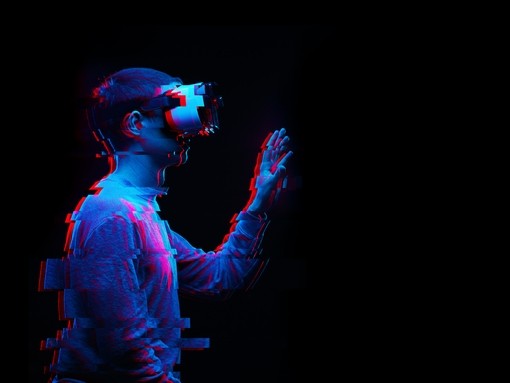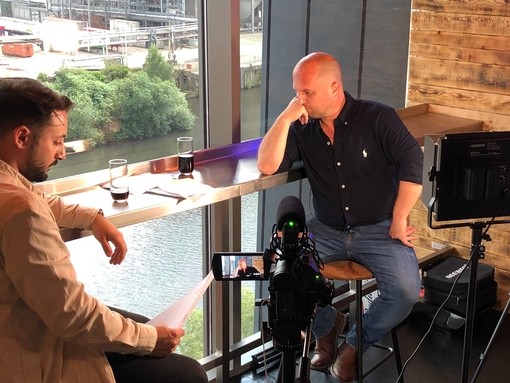
Are we too reliant on tech? What happened when 3.5 billion people were plunged into digital darkness
On Monday 4th October 2021, the internet briefly died.

Well, a huge portion of it did, anyway.
Social networking behemoth Facebook, along with its family of hugely popular services including Instagram and WhatsApp, suddenly went offline for over 5 hours.
Millions of confused denizens of the social realm took to the stalwart supplier of news and rumours, Twitter, fully operational throughout the blackout, to try and find out what was happening. Memes were born and jokes were shared as one of the most fundamental and widely used communication structures on the planet floundered in the digital darkness.
With Facebook also being used by many to log into a plethora of other services and apps – from streaming to shopping - users across the world in search of something else to do online while the social giant was inactive found themselves unable to access a huge percentage of their other most frequented digital locales.
So, what happened?
Facebook issued an official explanation as soon as they had regained access to the platform:
Our engineering teams have learned that configuration changes on the backbone routers that coordinate network traffic between our data centres caused issues that interrupted this communication. This disruption to network traffic had a cascading effect on the way our data centres communicate, bringing our services to a halt.
One of the major shockwaves this caused was actually for Facebook themselves. Their internal systems, used for network security, communication and more, all run through the Facebook system and hence went the same way as the website. Facebook Workplace, the tool used by employees of the business itself and millions around the world was also taken out, leaving businesses of all kinds scrambling to communicate.
Facebook employees even found themselves unable to physically access office spaces, since their employee ID cards used to swipe in and out of buildings run on… you guessed it, Facebook. This in turn created an issue for security engineers trying to access the server units to fix the issue. The messaging system that would be used to tell the engineers to access the servers to physically override them and fix the issue runs on their own platform, so no such message could be sent. And even when they eventually reached the server units, they struggled to get inside because of their ID badges being offline.
All of this begs the question – are we becoming too reliant on technology?
Are we becoming too reliant on technology?
Technology plays a key role in all of our lives, and its benefits are there for all to see. The fact that 3.5 billion people utilise services from the Facebook-owned suite alone to communicate and connect shows how easy and far-reaching our love-affair with tech is. The problems arise when these systems go offline for even a few hours, and society struggles in the dark.
Technological reliance can be looked at in two ways; personal and societal.
The personal reliance on tech is reflected in our reliance on technology to communicate and interact with other people, and the psychological effects of having this taken away. There’s even a term for people who have an actual fear of not having or losing their mobile phone – nomophobia.
Technology proved to be the saving grace for many people during the coronavirus lockdowns of 2020/21, allowing isolated people to communicate, share, reach out and work with others remotely. Without it, many people would have struggled with social isolation and the associated detrimental effects on emotional wellbeing.

But a recent study showed that 47% of parents believed that their children were suffering from a smartphone addiction. In the 18 to 29-year-old category, 22% of smartphone users admitted to checking their devices every few minutes – a clear sign of addiction.
A huge part of our over-reliance on technology stems from the fact that every business relies on it. This is broadly true but also in the specific case of becoming reliant on one particularly system like Facebook. Many small businesses were losing money in sales during the outage, since they rely on the platform or one of its other apps like WhatsApp or Instagram as their primary, or only, sales platform.
You only have to look at the chaos within Facebook’s own systems of operation during their outage to see that becoming overly reliant on one system can be problematic, which makes it all the more concerning that so few companies own so many apps and services.
Plus, with personal data stored all around the world, there is a real danger that a cyber-attack on one business can cause total chaos on both a personal and wider societal level, with secure data being exposed, leaked and held hostage.
Is technology going to render us obsolete?
It’s one thing for people to become reliant on technology, but is that same technology eventually going to take over its user’s job?
Technological displacement in the jobs market has been an ongoing concern for years. Many traditional jobs in manufacturing have changed beyond recognition over the last 20-30 years or have ceased to exist entirely. A car production line, for example, has far fewer people and far more robots operating it than ever before, meaning that technology has displaced these people into different roles. Sometimes these roles can be in the maintenance and operation of the technology that has replaced them, but the relentless pace of innovation means that sometimes these people don’t possess the skills they need to do this.
A recent statistic from a thinktank even suggests that 250,000 administrative jobs could be taken over by AI technology by the year 2030.
It’s not all bad news though. As a business, we’re even harnessing the power of AI for the recruitment process. Morson uses the power of technology to speed up the recruitment process with specialised technology like TalentDNA. With this app, our clients can create behavioural, health and safety, critical thinking and skills-based challenges that can be accessed by candidates in their own time via their smartphone.
Our Fit For Work app also provides ‘digital PPE’ for workforces using the power of AI. Developed with AI experts facecheck.ai, the system supports organisations in managing their workforce – tracking that the right workers are in the right place at the right time with the right equipment and training.
Proof then, that technology and human workforces can work well together.
So, what do we do about our technological addiction?
As a world, we must learn to live with technology but always remember its shortcomings. World-wide outages like this one are likely to happen again – after all, accidents happen, and a tiny string of code can render an entire system useless. It’s how we react as a human species to these problems that is important.
We must temper our total and unfailing reliance on technology and instead harness it in union with the old-fashioned human element ensures we don’t, like the Facebook employees on 4th October 2021, get locked out of our world by our own systems.
Is society’s ever-expanding use of technology and reliance on Big Data being abused to create a chilly digital dystopia? We looked at China’s budding social credit system as an example of how data harvesting and innovations in artificial intelligence are being used to herald in a future of holistic surveillance. Read more here.
















